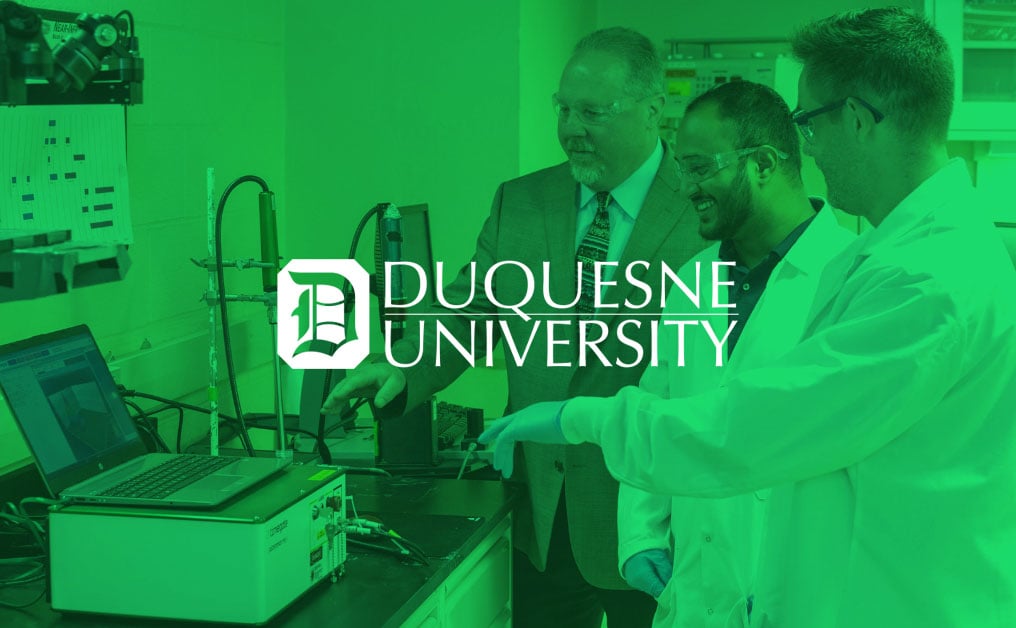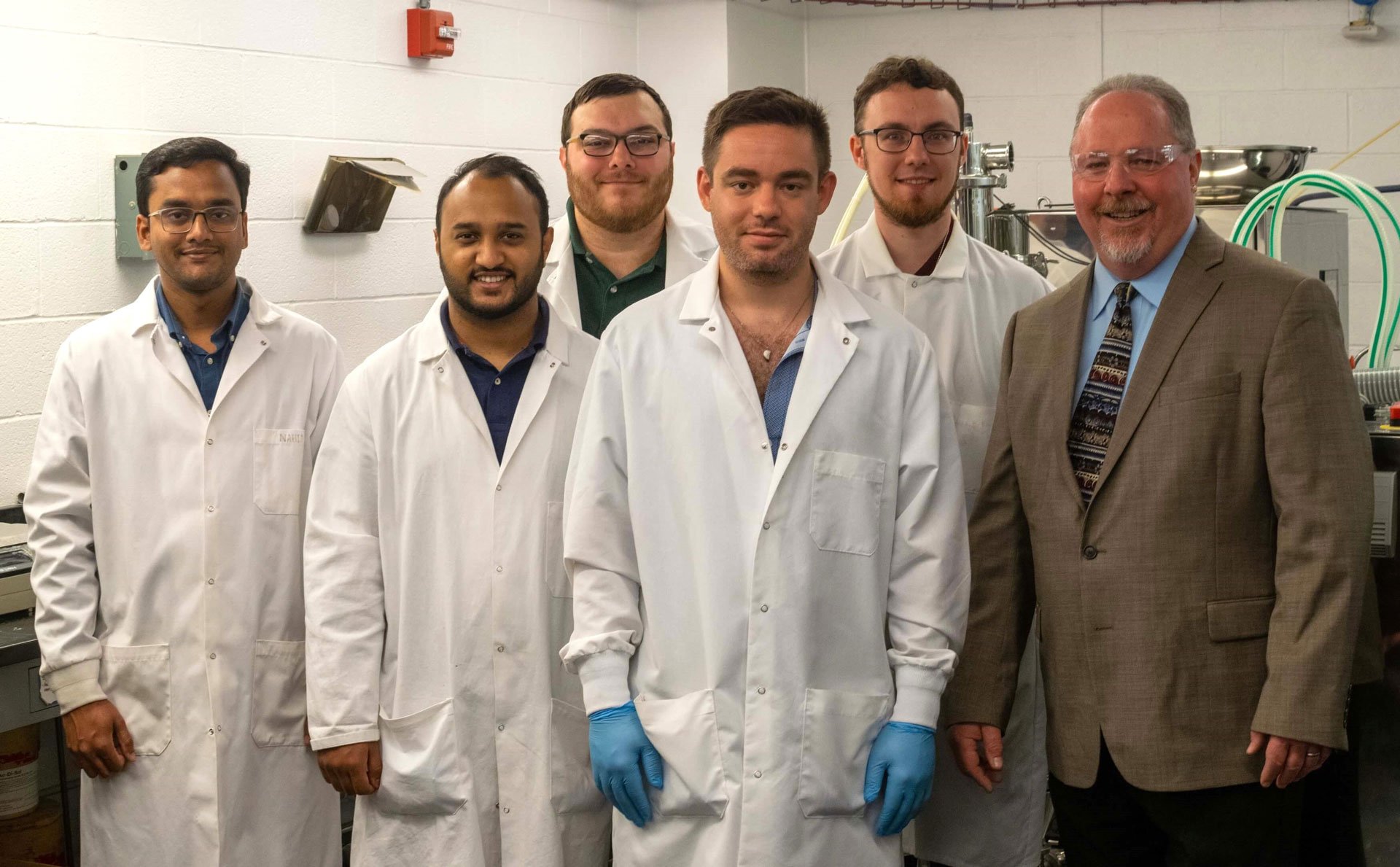
Duquesne University with Timegated® Technology
Duquesne University, Pfizer, and NIPTE - Project to Improve Bioprocess Monitoring with Timegated® Raman Technology
Duquesne University, Pfizer Inc., and National Institute for Pharmaceutical Technology and Education (NIPTE) have launched a research project called Timegated® Raman Spectroscopy to Improve Chemical Sensitivity for In-situ Bioreactor Monitoring.
The project is led by Dr. Carl Anderson, Associate Professor of Pharmaceutical Sciences and Associate Dean in Research and Graduate Programs. It focuses on applying Timegated® Raman spectroscopy to eliminate fluorescence from the measurements. As a participant in the project, Pfizer Inc. will provide the industrial perspective.
– By having a better limit of detection for both cellular metabolites and nutrients in the media, the current chemical state of a bioprocess can be more accurately understood. Therefore, we can control it much more effectively, Carl Anderson states.
McCrone Microscopes & Accessories, the U.S. distributor for Timegate Instruments, facilitated the collaboration by delivering Timegated® Raman spectrometer PicoRaman M3 to Duquesne University. The 18-month project, funded by National Institute for Innovation in Manufacturing Biopharmaceuticals (NIIMBL), commenced in Pittsburgh, USA.

Revolutionary Influence on Pharmaceuticals and Biomanufacturing
The research team has great confidence in the groundbreaking impact of the results and the Timegated® Raman Technology. The scientists are determined to showcase the upgrades it can provide to the pharmaceutical industry and biomanufacturing.
We're excited about bringing this technology to the pharmaceutical industry and believe it will solve some industrially relevant problems. We're enthusiastic about the idea that we will be doing some science that can provide better bioproducts manufactured less expensively ultimately benefiting patients, Anderson states.
Dr. Anderson is extremely pleased to advance the processes in the biopharmaceutical industry.
– I have spent my career developing analytical tools for the pharmaceutical industry and biomanufacturing, and now, I'm very excited to contribute to this revolutionary step by using Timegated® Raman spectroscopy in bioprocessing. This will change the ways bioprocesses are monitored in the biopharma arena.
Unique Timegated® Raman Technology in the Bioprocess Industry
The project aims to advance the industrial application of the technology by raising the biomanufacturing readiness level with Timegated® Raman spectroscopy. This means that the technology should be more ready for any company to buy a system and apply it to industrial process lines. Specifically, for upstream bioprocessing or fermentation processes, it's been proven to be very valuable in monitoring cellular metabolites as well as cellular nutrients.
– There's no technology like this commercially available. Even though Timegated® Raman spectroscopy has been around for a while, it's only been available in very highly specialized labs where the equipment has not been available to us for routine application. Also, the technology itself is absolutely critical – the ability to monitor and make Raman measurements while minimizing fluorescence appearance, describes Anderson.

Duquesne University
Duquesne University of the Holy Spirit is a private, Catholic research university in Pittsburgh, United States. It is founded by members of the Congregation of the Holy Spirit, the Spiritans. They share the Spiritans' deep commitment to educational excellence, moral and spiritual values, an ecumenical atmosphere open to diversity, and service to the Church, the community, the nation and the world.